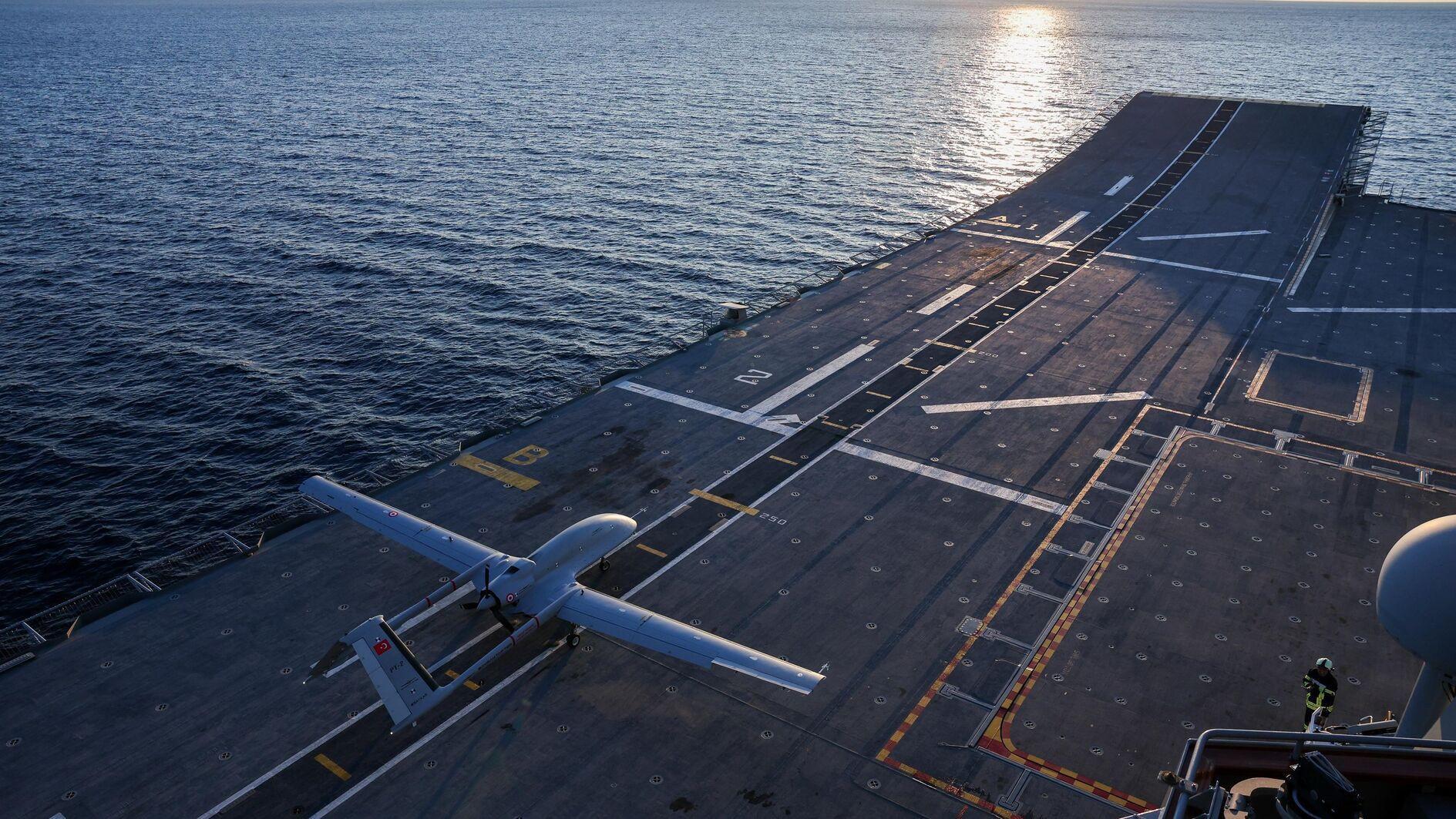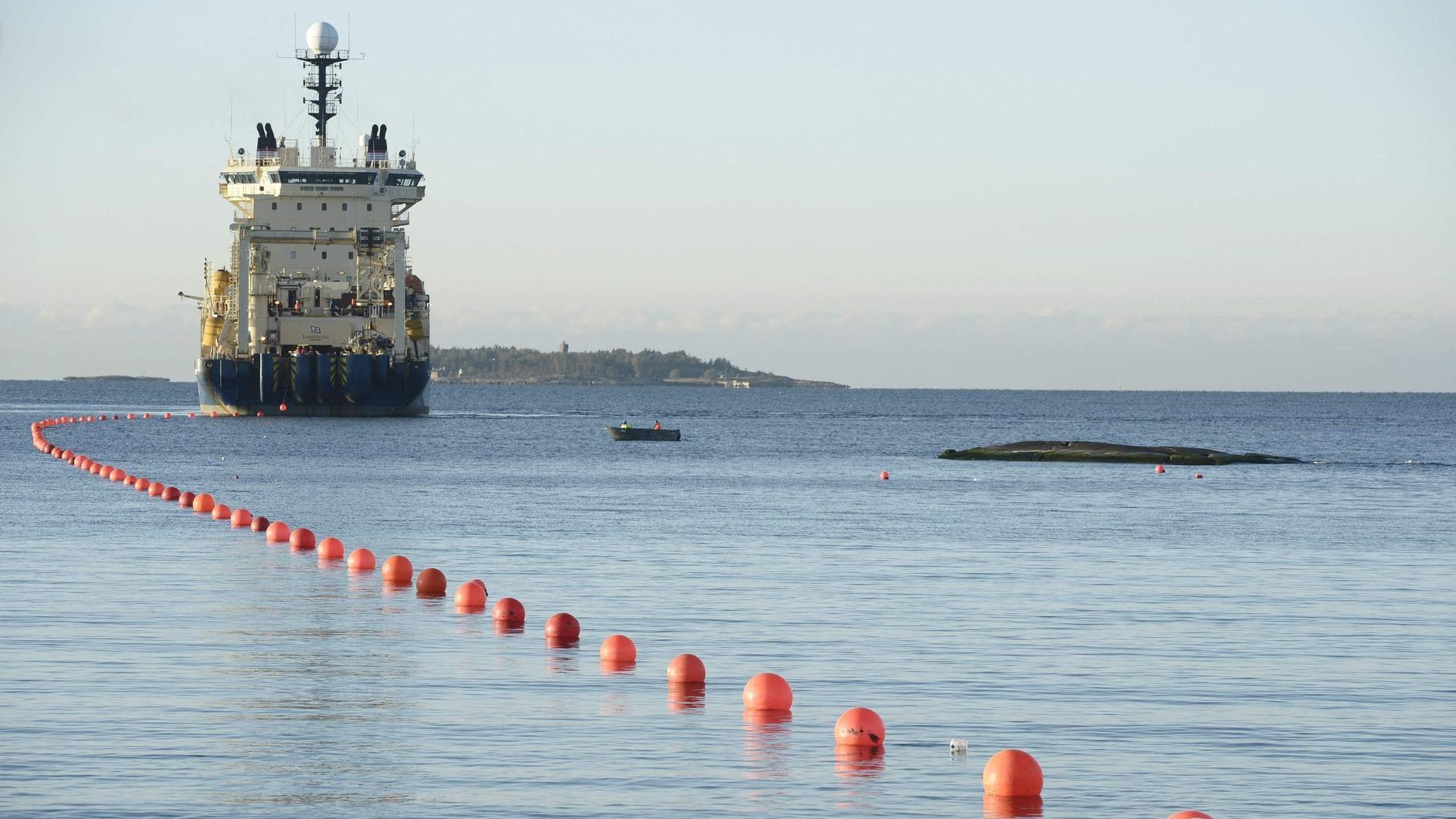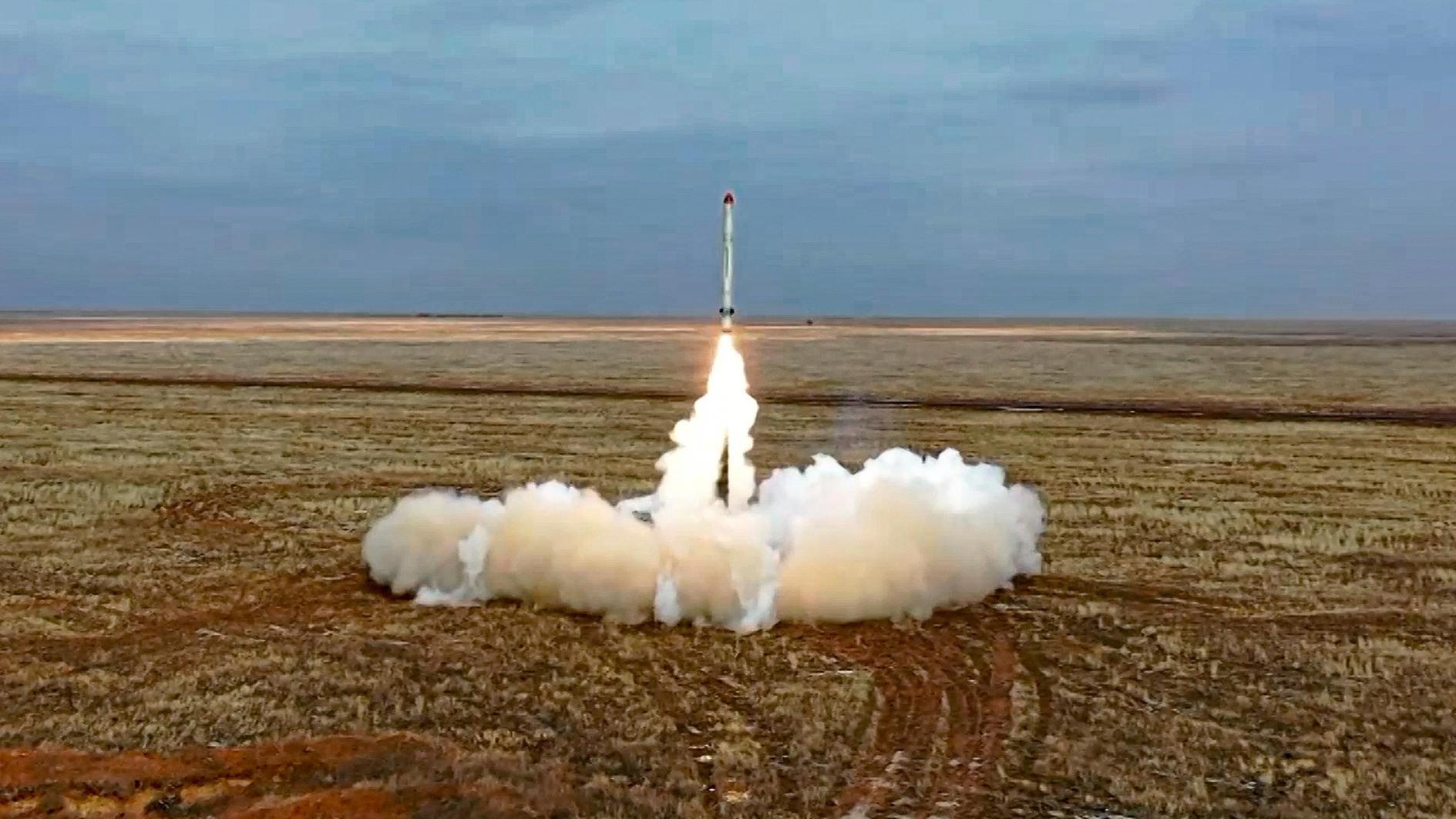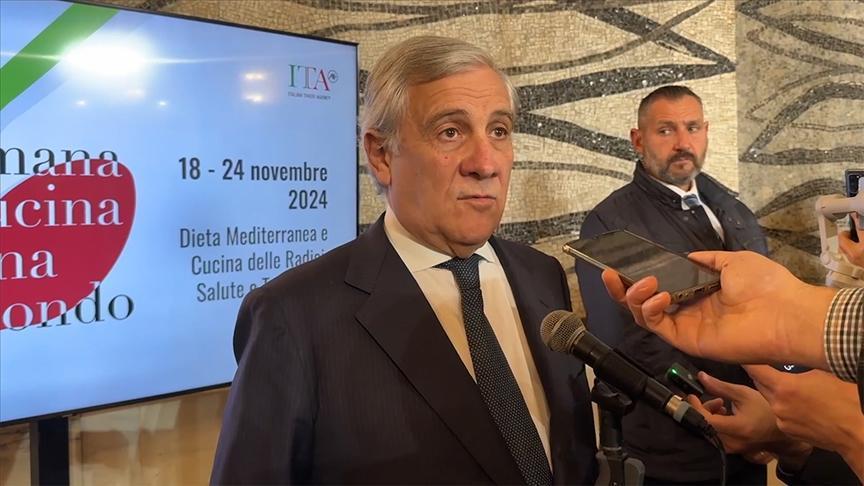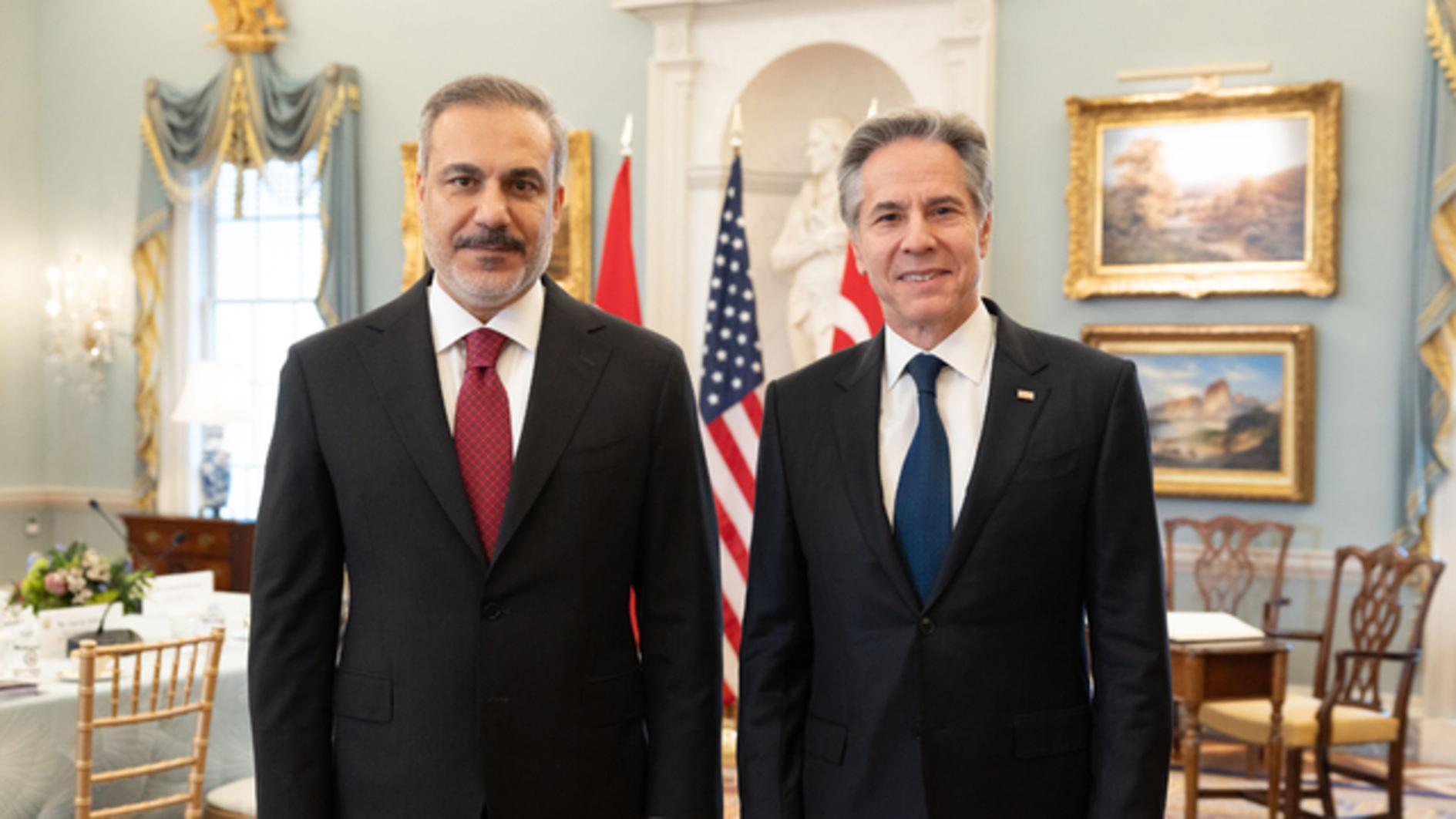Turkey's first cabinet meeting chaired by President Erdoğan takes more than 8 hours
ANKARA

A portrait of Atatürk was hung behind President Erdoğan during the cabinet meeting on Jan. 19. Previously, the new presidential palace's main meeting room was criticized by the opposition for not having any reference to the founder of the Turkish Republic. AA Photo
President Recep Tayyip Erdoğan marked a first Jan. 19 in presiding over a cabinet meeting in line with earlier statements that he will not be a “protocol president” – even if it comes at the cost of weakening Prime Minister Ahmet Davutoğlu’s authority and influence in the ruling Justice and Development Party (AKP).The meeting started at the Presidential Palace under the leadership of Erdoğan and with the participation of Davutoğlu and all ministers at 12:20 p.m., ending at 20:55 p.m. on Jan. 19.
While briefing reporters after the meeting, government spokesperson and Deputy Prime Minister Bülent Arınç told that the ongoing unrest in Cizre, a town near Turkey's border with Syria and Iraq, posed a threat for the fate of the government-led peace process aimed at ending the three-decade long conflict between security forces and the outlawed Kurdistan Workers' Party (PKK).
Both the Chief of the Gendarmerie Command and the undersecretary of the National Intelligence Organization (MİT) were present at the Cabinet meeting, Arınç confirmed, while responding to questions on the unrest in Cizre where tension peaked after a 12-year-old boy was shot last week, the sixth person to be killed in the town in the last three weeks.
Following a question on unconfirmed reports that Erdoğan is planning to preside over cabinet meetings every two months, Arınç only said that the president has the authority to chair the meeting anytime. "The next cabinet meeting is scheduled on Jan. 26 in the Prime Ministry," he added.
At the beginning of the meeting, Erdoğan briefed ministers about his works since he was elected president in August 2014 and informed them of the new organizational structure of the presidency. Erdoğan is establishing 12 different units to closely follow state affairs and to “build a better harmony between the government and the presidency.”
According to Arınç, Erdoğan said that "those who try to disrupt harmony with the government or those who try to portray presence of a tension between the president and the government are doing wrong."
After Erdoğan’s briefing, Davutoğlu briefly informed about the government’s activities, followed by comprehensive briefings by ministers on a number of issues. Interior Minister Efkan Ala summarized developments regarding the AKP’s fight against the “parallel structure” of the Gülen movement; Deputy Prime Minister Yalçın Akdoğan spoke about the ongoing Kurdish peace process; Foreign Minister Mevlüt Çavuşoğlu briefed on foreign policy issues and the global terrorism threat; and Deputy Prime Minister Ali Babacan spoke on economic issues facing Turkey.
After becoming the first president elected through a popular vote, Erdoğan made clear that he would use all of his constitutional powers, including presiding over cabinet meetings when deemed necessary, in line with Article 104 of the Constitution. His right-arm man and chief adviser, Binali Yıldırım, said Erdoğan would call the cabinet for the meeting on Jan. 5, drawing sharp criticism from Davutoğlu, who said such issues would be announced either by him or the president. To end the quarrel, Erdoğan publicized his intention to preside over the meeting on Jan. 19.
'Disharmony' between President, PM
At a meeting with deputy parliamentary group leaders of the AKP a few days ago, Erdoğan hinted that one of main issues he would raise during the meeting would be the disharmony between the presidency and the prime ministry.
According to daily Hürriyet, during that meeting, Erdoğan criticized the “consultation and advisory” mechanism between the presidency and the prime ministry, saying it was operating adequately. “The presidential system is needed for consultation and harmony to occur,” he said, repeating his desire to impose a presidential system on Turkey.
One indication of his discomfort with the government was Davutoğlu’s announcement of a transparency package amid an ongoing debate over the fate of four former ministers allegedly involved in corruption. “The timing and content of such a regulation is very important; I don’t find it correct before an election,” he reportedly said.
Other issues to be discussed at the meeting are the ongoing Kurdish peace process and the fight against the Gülen community, dubbed the parallel structure. Both issues are priorities for Erdoğan, but he wants the government not to show even a tiny step back in the fight against the Gülen community.
The meeting is also expected to review controversial projects currently being realized, such as the third airport, third bridge and other big investments that have been criticized for their destruction of the environment.


